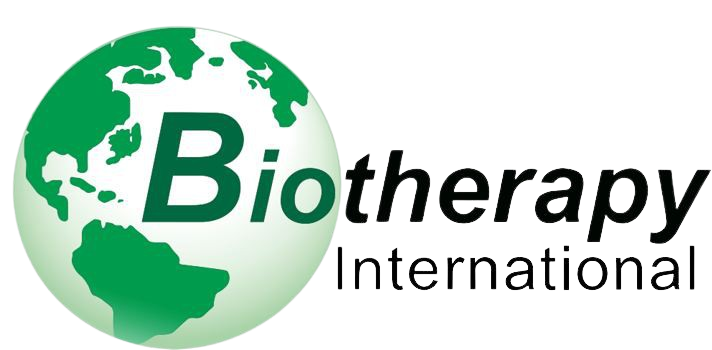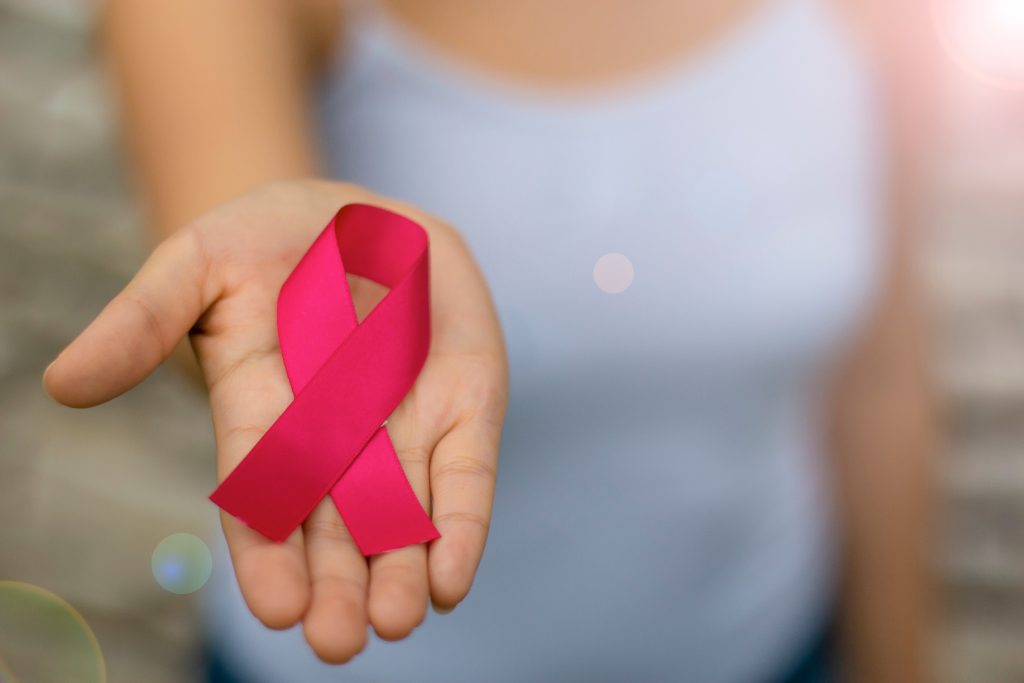Triple-negative breast cancer (sometimes also known as triple negative invasive ductal carcinoma or TNBC) accounts for approximately 15-20% of all diagnosed breast cancers and is known for its aggressive nature and limited treatment options.
The defining characteristic of TNBC is the absence of 3 key markers: estrogen receptor (ER), progesterone receptor (PgR), and human epidermal growth factor receptor 2 (HER2) expression. Diagnosis of triple-negative breast cancer is primarily done through immunohistochemical staining of the tumor tissue, obtained from a biopsy.
TNBC’s lack of specific receptors makes it less responsive to hormonal therapies and targeted treatments commonly used for other types of breast cancer. Immunotherapy has emerged as a promising avenue for the treatment of triple-negative breast cancer due to its unique ability to harness the body’s immune system to combat cancer cells.
Stages of Triple Negative Breast Cancer
Generally, oncologists classify cancer progression depending on the extent of tumor growth and whether it has involved other organs.
As triple negative cancer is notorious for its rapid growth, proper staging is usually done immediately after the initial tumor-removal surgery.
- Stage 1 triple negative breast cancer. This is the earliest detectable stage. At this point, the tumor is confined to breast tissue only, without affecting the nipple, or any surrounding lymph nodes and blood vessels.
- Stage 2 triple negative breast cancer. This is when the tumor begins to spread. It is often subdivided into “Stage II A” (referring to a larger tumor, confined to the breast) and stage II B (where the tumor now touches surrounding lymph nodes).
- Stage 3 triple negative breast cancer. At this stage, the tumor cells have begun to spread to the lymph nodes or surrounding structures (such as the chest wall or the skin), but not to distant parts of the body.
- Stage 4 triple negative breast cancer. Also known as “triple negative metastatic breast cancer”, this is the most advanced stage of the disease. At this point, the tumor has invaded the lymph nodes and spread through the lymphatic system to distant organs (such as the lungs, bones, or liver).
Generally, the TNBC survival rate is lower than with other types of breast cancer. With advanced stages, the outlook is grim. In many cases, doctors focus instead on palliative care or symptom management.
Conventional Treatments for Triple Negative Breast Cancer
Until recently, TNBC treatment represented a near-insurmountable challenge for doctors. Many conventional targeted treatments for breast cancer rely on the PgR, ER, and HER2 receptors to “target” cancer cells and destroy them.
As TNBC lacks these receptors, treatment options for triple negative breast cancer often take a more aggressive and blunt approach. This type of cancer usually requires fast surgery, followed by chemotherapy or radiotherapy.
Generally, triple negative breast carcinoma responds visibly to chemotherapy. However, the possible presence of any cancer stem cells can make any subsequent relapse particularly dangerous. Chemotherapy for TNBC may not be capable of destroying all malignant cells in the body, which yields a poor prognosis: cancer can regrow and metastasize even from a microscopic or undetectable tumor.
Innovative Treatment Options for Triple Negative Breast Cancer
Unlike traditional chemotherapy which directly targets rapidly dividing cells, immunotherapy focuses on enhancing the immune response to identify and eliminate cancer cells. Immunotherapy for triple negative breast cancer appears especially promising. This type of cancer often has unique features that, when properly harnessed, make it more likely to respond well to immunotherapy.
At Biotherapy International, we use the following methods against TNBC:
- Checkpoint inhibitors. This is a class of immunotherapeutic drugs that metaphorically releases the brakes on the immune system, allowing it to mount a more robust attack against cancer cells. At Biotherapy International, we have clinical experience using immune checkpoints that are often ignored by other commercially available drugs.
- Oncolytic viruses. These are innocuous viruses, modified to attach themselves only to cancer cells. This makes the viruses attach to specific receptors found in malignant cells, from which they can invade and trigger apoptosis. As part of this process, the virus will also replicate itself inside the tumor cell, and release virions that will be released after cell death. These virions can then attach themselves to nearby or distant cancer cells.
- Anti Cancer vaccines. These custom-made vaccines seek to educate the immune system to recognize tumor cells as “non-self.” In this way, the immune system can then attack mutated tumor cells, while leaving surrounding cells intact. To ensure these effects remain precise, we manufacture vaccines using modified tumor samples, extracted from the patient during their regular biopsy or tumor extraction surgery.
- Adoptive Cell Therapy. This innovative approach uses mismatched killer cells to trigger an anti-cancer effect that is similar to that of organ rejection. This treatment is usually done after shrinking the tumor as much as possible through conventional methods.
Surviving TNBC through Personalized Immunotherapy
Every year of life after triple-negative cancer should be considered a gift. For patients who want to increase their chances of survival, it is important to act quickly and decisively, choosing a treatment that will take them to the “minimal residual disease” stage, and minimize the chance of any “leftover” cells from which cancer can regrow.
Our approach of care starts with the knowledge that each cancer and each patient is different. As a result, all our protocols are under constant revision and are customized individually for each patient.


